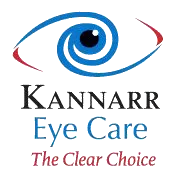Has driving or reading at night become more difficult? Your problems may be due to changes in your nighttime vision.
Read more-
How Nighttime Vision Can Change
Category: Newsletters
-
Does Reading in the Dark Affect My Eyesight?
Category: Newsletters
Did your mom ever tell you that you'd ruin your eyes if you read in the dark? Find out if the myth is true.
Read more -
Four Eye Diseases and Conditions Related to Aging
Category: Newsletters
-
How Blue Light Affects Your Sleeping Patterns
Category: Newsletters
-
How to Make Your Child's First Visit to the Optometrist a Success
Category: Newsletters
Worried that your child may be uncooperative during his or her first visit to the optometrist? These tips will help make the visit a positive experience.
Read more -
What is Surfer's Eye?
Category: Newsletters
Are you at risk for surfer's eye? You don't need to be an avid surfer to experience this problem. This condition may occur if you spend a lot of time outdoors.
Read more -
Makeup Tips for Sensitive Eyes
Category: Newsletters, Tips for Healthy Eyes
Do your cosmetics make your eyes water and burn? Try these makeup tips for sensitive eyes.
Read more -
6 Vision Problems That May Occur During Pregnancy
Category: Newsletters
Think it's just a coincidence that your vision changed since you've been pregnant? These six vision problems are more likely to affect pregnant women.
Read more -
Does Outside Playtime Improve Children's Eyesight?
Category: Newsletters
Have you ever wondered why some people become nearsighted? Lack of time in the sun may be to blame.
Read more -
Proper Contact Lens Care Keeps Your Lenses Comfortable and Clean
Category: Newsletters
Do you follow care recommendations for your contact lenses? If not, you may putting your vision at risk.
Read more -
Online Vision Tests Can't Match Our Eye Doctor!
Category: Newsletters
Want to save a little money by taking an online vision test instead of seeing the eye doctor? You may be disappointed with your new eyeglass prescription.
Read more -
What Happens When You Don't Wear Sunglasses?
Category: Newsletters
Have you lost your sunglasses again? Failing to wear the glasses consistently may lead to several eye conditions.
Read more -
What does 20/20 Vision Mean?
Category: Newsletters
-
History of the Eye Chart
Category: Newsletters
Do you have 20/20 vision? You might never have known about these important numbers if the eye chart hadn't been invented.
Read more -
Does Outside Playtime Improve Children's Eyesight?
Category: Newsletters, Kid's Vision
-
Curbing Macular Degeneration
Category: Newsletters, Conditions That Affect Vision
Macular degeneration represents one of the most significant causes of vision loss in older adults. According to the Centers for Disease Control and Prevention, an estimated 1.8 million people currently suffer from macular degeneration, with an additional 7.3 million people at risk of developing this
Read more
